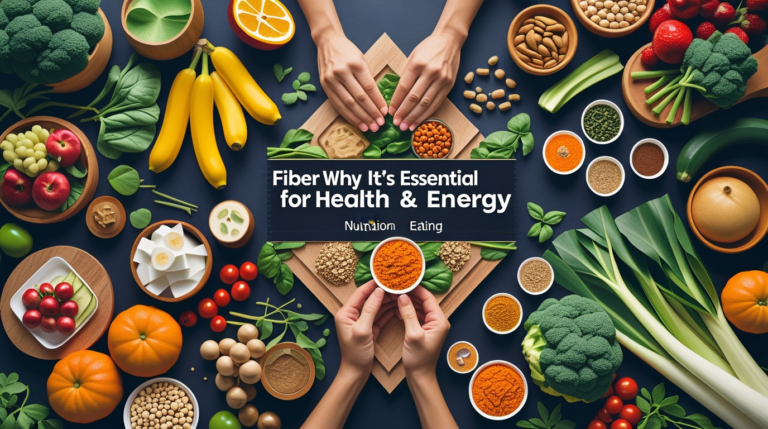In a world filled with ever-tempting fast food joints and unhealthy eating habits, learning how to start eating healthy without feeling deprived is not just a trend; it’s a necessity. Whether you’re aiming for weight loss, more energy, or simply a healthier lifestyle, understanding the basics of nutrition can make all the difference. This blog post will guide you through practical tips and mindsets that will transform your relationship with food. You’ll discover that healthy eating doesn’t have to be about denial but embracing more flavors and abundance.
Understanding the Basics of Healthy Eating
Before diving into the world of healthy eating, it’s crucial to understand what it entails. Healthy eating is not about cutting out entire food groups or depriving yourself of the pleasures of dining. Instead, it’s about making informed choices that enhance your overall wellbeing. It’s essential to focus on quality over quantity and understanding the nutritional value of what you ingest on a daily basis.
Adopting a Balanced Diet
A balanced diet involves different types of food in the correct proportions, so your body receives all the necessary nutrients it needs. This doesn’t mean you should avoid your favorite food. Instead, it’s about adding more nutritional value to every meal. Think of your plate like a pie chart, where fruits, vegetables, grains, protein, and dairy each have their place.
- Fruits and Vegetables: Aim for a variety of colors to ensure a range of nutrients.
- Whole Grains: Replace refined grains with whole grains; they’re richer in fiber and nutrients.
- Protein: Incorporate both plant-based and lean animal proteins.
- Dairy: Opt for low-fat or fat-free options where available.
The Importance of Portion Control
Even with the most nutritious foods, moderation is key. Portion control is crucial for healthy eating without deprivation. Using smaller plates, checking food labels for serving sizes, and being mindful of what you eat are effective methods to control portions. This doesn’t just apply to solid foods; keep an eye on liquid calories too, such as in juices and sodas. By managing how much you eat, you prevent the feeling of deprivation.
Strategies to Eat Healthy Without Feeling Deprived
One of the main challenges people face when transitioning to a healthier diet is feeling deprived. The key is to approach this journey with excitement and creativity, ensuring that your meals are varied and fulfilling without triggering a sense of sacrifice. Let’s explore some strategies:
Rediscover the Joy of Cooking
Cooking at home opens the door to endless possibilities for eating healthy. By preparing meals yourself, you have complete control over what goes into your dishes, allowing you to experiment with fresh ingredients, spices, and herbs. This can radically transform simple meals into gourmet experiences. Consider taking a cooking class or looking up new recipes every week to keep things interesting.
- Explore New Recipes: Try dishes from various cuisines, which often emphasize different, healthy ingredients.
- Batch Cooking: Prepare meals in advance to avoid the temptation of reaching for less healthy options when you’re short on time.
Mindful Eating Practices
Mindful eating is about appreciating each bite, which helps you become more aware of the textures and flavors of your food, leading to more satisfaction from smaller portions. It involves slowing down, chewing thoroughly, and eliminating distractions while eating. Practices like these can prevent overeating and help you develop a healthier relationship with food.
Common Misconceptions About Healthy Eating
Many find themselves discouraged by myths and misconceptions surrounding healthy eating. Let’s debunk a few to ensure you’re on the right path.
Myth: Healthy Eating Is Expensive
While some healthy options can be pricey, like organic produce or specialty health foods, you don’t need them to eat well. From seasonal fruits and vegetables to whole grains and legumes, many affordable foods are packed with nutrients. Planning meals around sales and using store brands can dramatically cut down costs without sacrificing your health goals.
Myth: You Have to Cut Out All Treats
A common misconception is that healthy eating requires eliminating all indulgences. Depriving yourself of treats can set you up for binge eating. Instead, practice moderation. Enjoy a piece of dark chocolate or a small serving of your favorite dessert once in a while, and relish every bite.
Integrating Healthy Eating Habits Into Your Lifestyle
Healthy eating is most sustainable when it becomes part of your lifestyle rather than a short-term commitment. Here’s how you can make it a habit:
Create an Environment That Supports Healthy Eating
A supportive environment can make or break your healthy eating journey. Stock up on healthy snacks like nuts, fruits, and yogurt to easily grab whenever you feel hungry. Additionally, keep temptation at bay by avoiding the purchase of unhealthy options that you tend to binge on.
Social Support and Accountability
A change as significant as one’s diet is often more successful when done with support. Whether it’s joining a community, enlisting a friend for a meal prep day, or following a nutritionist’s advice, social support can provide motivation and accountability.
Key Takeaways
Transitioning to healthier eating habits doesn’t have to be a daunting experience characterized by sacrifice or deprivation. By incorporating a balanced diet, practicing mindful living, and debunking common myths, you can embark on a fulfilling journey toward nutritional health. Remember to prioritize long-term lifestyle changes over short-term dietary fads to achieve the best results.
Are you ready to start eating healthy without feeling deprived? Check out our blog on Healthy Meal Prep Ideas for Busy Weekdays or read about The Benefits of Appreciating Local and Seasonal Foods to gain further insights. If you found this article helpful, drop a comment below, share it with your friends, or subscribe to our newsletter for more tips and inspiration!





Leave a Comment